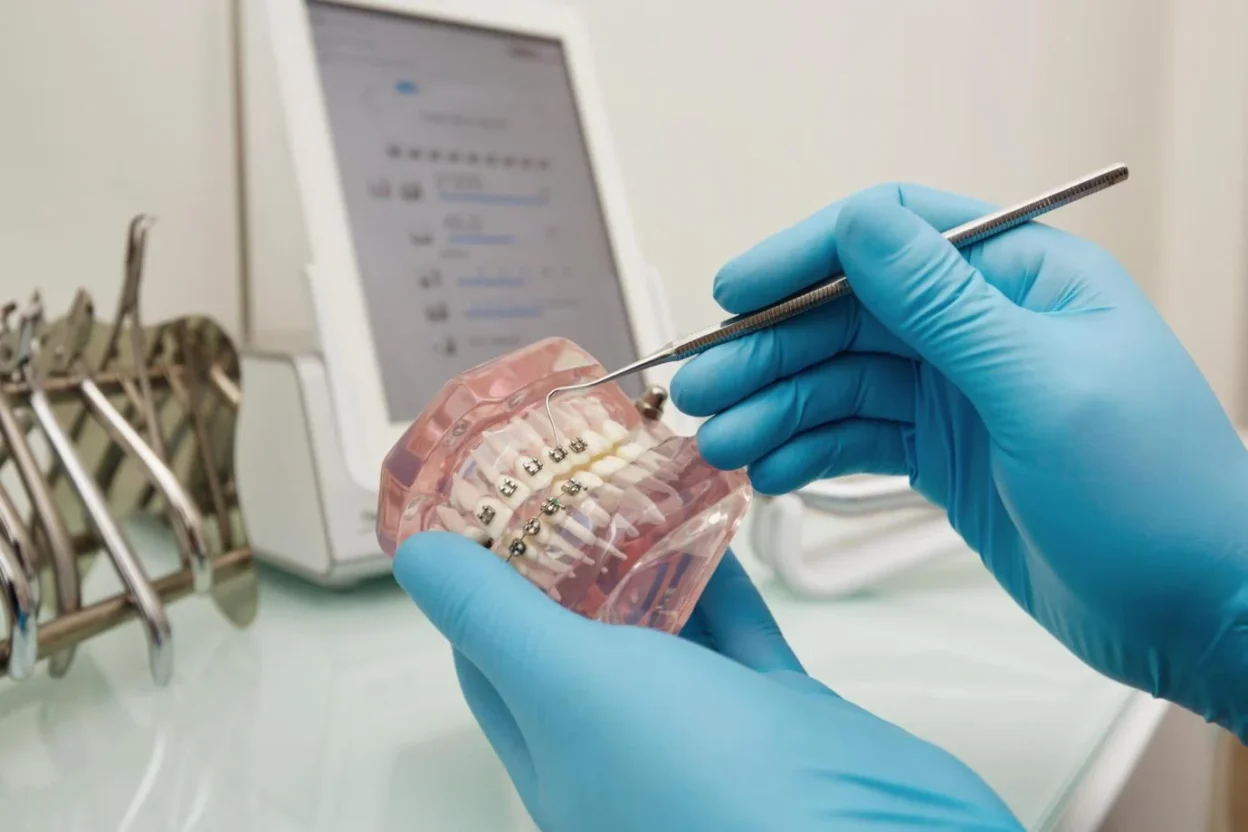Have you ever felt lost when your oral surgeon explained a dental procedure? Many people experience confusion during dental visits, especially when unfamiliar terms are used. Clear communication is key to understanding your treatment, feeling comfortable, and making informed decisions.
Speaking the “language” of dental health is not about knowing every medical term; it is about asking the right questions and expressing your concerns. In this guide, we will explore ways to build effective communication with your oral surgeon for better care, faster recovery, and a confident smile.
Understanding the Role of Your Oral Surgeon
Oral surgeons are dental specialists who handle complex procedures involving the mouth, jaw, and face. They perform surgeries such as wisdom tooth removal, dental implants, jaw alignment, and treatment for facial injuries. Understanding their role can help you communicate better because you know what kind of expertise they bring to your care.
When you know what your oral surgeon does, you can ask more focused questions about your condition and the treatment options. This also helps you feel more confident when discussing procedures and their benefits. For example, knowing that oral surgeons are trained in both dental and surgical care reassures you that you are in skilled hands.
They also work closely with general dentists and other specialists to create a complete treatment plan. This teamwork means your oral surgeon can explain how your surgery fits into your overall dental health goals. By understanding their role, you can better follow the steps leading to successful outcomes.
A clear picture of your oral surgeon’s work helps you know what to expect, express needs, share concerns, and understand recommendations. When both are on the same page, communication improves.
Preparing Questions Before Your Appointment
A good way to improve communication is to prepare a list of questions before you see your oral surgeon. Writing them down ensures you don’t forget important concerns during the visit. This also helps you stay focused and get clear answers about your procedure and recovery.
Your questions can cover several areas. Ask about the purpose of the treatment, how it will be done, and what results to expect. Include questions about possible risks, recovery time, and any changes you should make to your daily routine before or after surgery.
It is also helpful to ask about costs and payment options early in the process. This avoids confusion later and allows you to plan your budget. You may also want to ask about alternative treatments and why your surgeon recommends one approach over another. Preparing questions in advance shows your seriousness about dental health, gives peace of mind, and ensures clear understanding of next steps.
Learning Common Dental and Surgical Terms
Dental and surgical language can feel like a different world. Words like “extraction,” “osseointegration,” or “malocclusion” may sound intimidating if you’ve never heard them before. Learning common terms makes it easier to follow your oral surgeon’s explanations and feel more involved in the discussion.
You don’t need to memorize every medical word. Focus on the ones that are most relevant to your procedure. For example, if you are getting dental implants, understanding terms like “abutment” and “bone graft” can help you follow the treatment plan more easily.
Many oral surgeons are happy to explain terms in plain language. If you don’t understand something, ask for a simpler explanation. This not only clears up confusion but also shows you are actively listening.
You can also look up basic dental terms online before your appointment. Some clinics provide brochures or websites with helpful glossaries. With this knowledge, you will feel more confident and be able to ask more specific follow-up questions.
Explaining Your Symptoms Clearly
Clear communication works both ways – your oral surgeon needs to understand you just as much as you need to understand them. Explaining your symptoms in detail helps your surgeon make an accurate diagnosis. This can lead to a faster treatment plan and better results.
When describing symptoms, be specific about what you feel and when it happens. Instead of saying, “My jaw hurts,” you could say, “I feel sharp pain on the left side when I chew.” Details about the timing, location, and type of discomfort can help your oral surgeon narrow down possible causes.
You should also mention any changes in your symptoms over time. If the pain is getting worse, if swelling has increased, or if there’s bleeding, make sure to include that information. These details can guide your surgeon toward the most effective solution.
If you struggle to remember everything, keep a brief diary of your symptoms. Note the time of day they occur and any activities that trigger them. This makes it easier to provide a clear and complete picture during your appointment, ensuring your surgeon has the best information to work with.
Using Visual Aids to Understand Procedures
Sometimes, words are not enough to fully explain a dental procedure. Visual aids like diagrams, photos, or 3D models can make complex ideas easier to understand. Many oral surgeons use these tools to show exactly what will happen during surgery.
Seeing a model of your jaw or teeth can help you understand where the problem is and how it will be fixed. It also makes it easier to visualize the steps involved, which can reduce anxiety. For example, a diagram of a dental implant procedure can show how the post, abutment, and crown work together.
You can also ask your oral surgeon to draw a simple sketch to explain your treatment. Even a quick drawing can make a big difference in understanding. Some clinics also have videos that walk you through the process in a clear and simple way.
Visual aids are especially helpful for people who learn better through images than through listening alone. When you combine verbal explanations with visual materials, you are more likely to remember important details and feel more prepared for the procedure ahead.
Discussing Recovery and Aftercare in Detail
Understanding what happens after surgery is just as important as knowing what happens during it. Recovery instructions can include details about diet, pain management, and activities to avoid. If these steps are not clear, healing may take longer, or complications may arise.
During your appointment, ask your oral surgeon to explain recovery guidelines in simple language. Write down the key points so you can review them at home. If possible, have a family member or friend listen as well, so they can help you remember instructions.
Make sure you understand what signs to watch for that could indicate a problem. Ask about normal recovery symptoms versus those that require immediate attention. This will help you feel more secure during the healing process.
If you are unsure about anything after surgery, contact your surgeon right away. It is always better to ask a quick question than to risk a complication. Taking an active role in your aftercare can speed up your healing and give you the best possible outcome.
Being Honest About Your Medical History
Your oral surgeon needs a complete and accurate medical history to plan your treatment safely. This includes any medications you take, allergies, and past surgeries. Even details that seem unrelated, like a history of heart problems or diabetes, can affect your dental care.
Be honest about your habits, such as smoking or alcohol use, as these can influence healing. Some medications may also affect bleeding or bone health, so your surgeon must know about them before surgery. Full disclosure helps avoid risks during and after the procedure.
If you are unsure about some details, bring medical records or a list of medications from your doctor. This ensures you have accurate information to share. Also mention any previous dental issues, like failed implants or chronic gum disease, as they may impact your treatment plan.
Building Trust Through Ongoing Communication
Good communication with your oral surgeon doesn’t end after your first visit. Staying in touch throughout your treatment helps you feel supported and informed. This is especially important if you have multiple appointments or a longer recovery period.
Follow-up visits are a chance to discuss how you are healing and whether adjustments are needed. Use these appointments to share any concerns, even if they seem small. Sometimes, a quick check can prevent bigger problems later.
If you experience pain, swelling, or unexpected changes, reach out to your surgeon right away. They would rather hear from you early than find out later that something has gone wrong. It’s always a good idea to consult with an oral surgeon when in doubt about your recovery progress.
Over time, this ongoing communication builds trust. You will feel more confident knowing your surgeon is listening and guiding you at every stage. A strong, trusting relationship helps ensure that you not only get the best treatment but also feel at ease throughout the process.
Start Effectively Communicating with Your Oral Surgeon Now
Clear communication with your oral surgeon is the foundation of successful dental treatment. By preparing questions, learning basic terms, describing symptoms accurately, and following aftercare instructions, you take control of your dental health journey. Honesty about your medical history and maintaining contact during recovery builds trust and ensures better results.
Remember, your oral surgeon is your partner in achieving a healthy smile. The more open and informed your conversations are, the better your experience and outcome will be. Make every appointment a step toward confidence, comfort, and lasting dental health.
Want more helpful guides? Explore other articles on our blog covering various topics.

Lexy Summer is a talented writer with a deep passion for the art of language and storytelling. With a background in editing and content creation, Lexy has honed her skills in crafting clear, engaging, and grammatically flawless writing.



